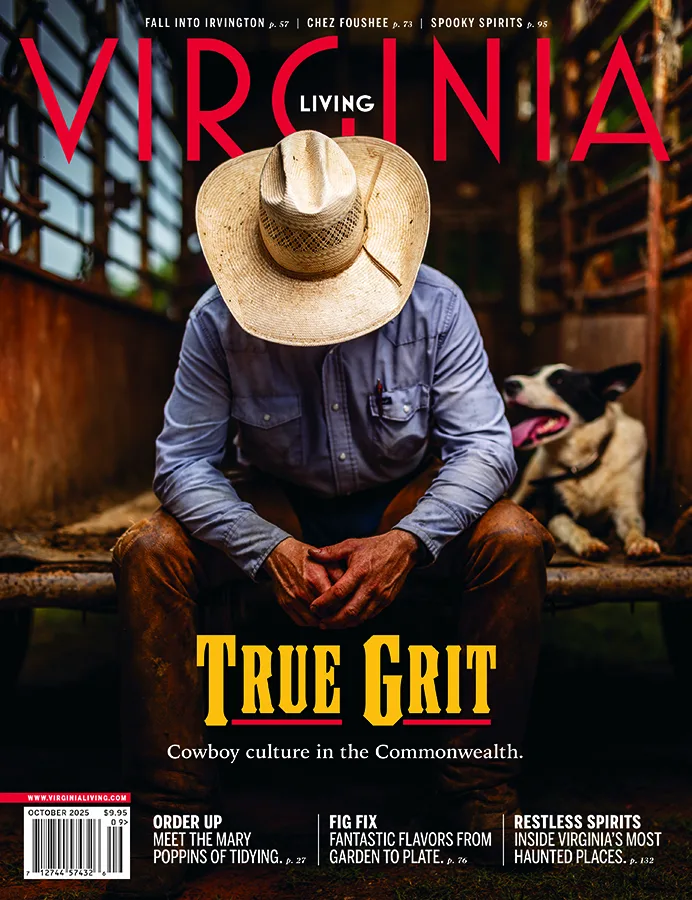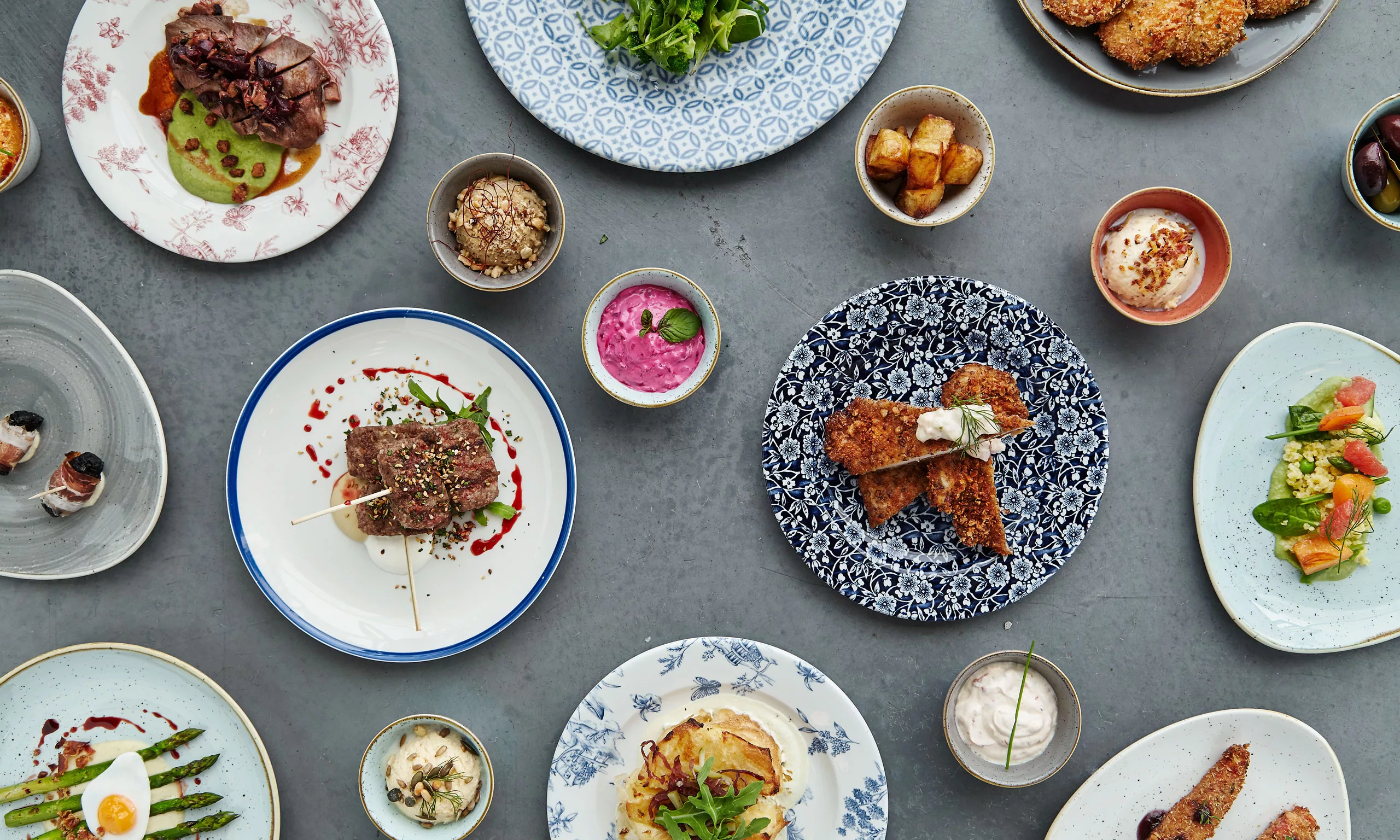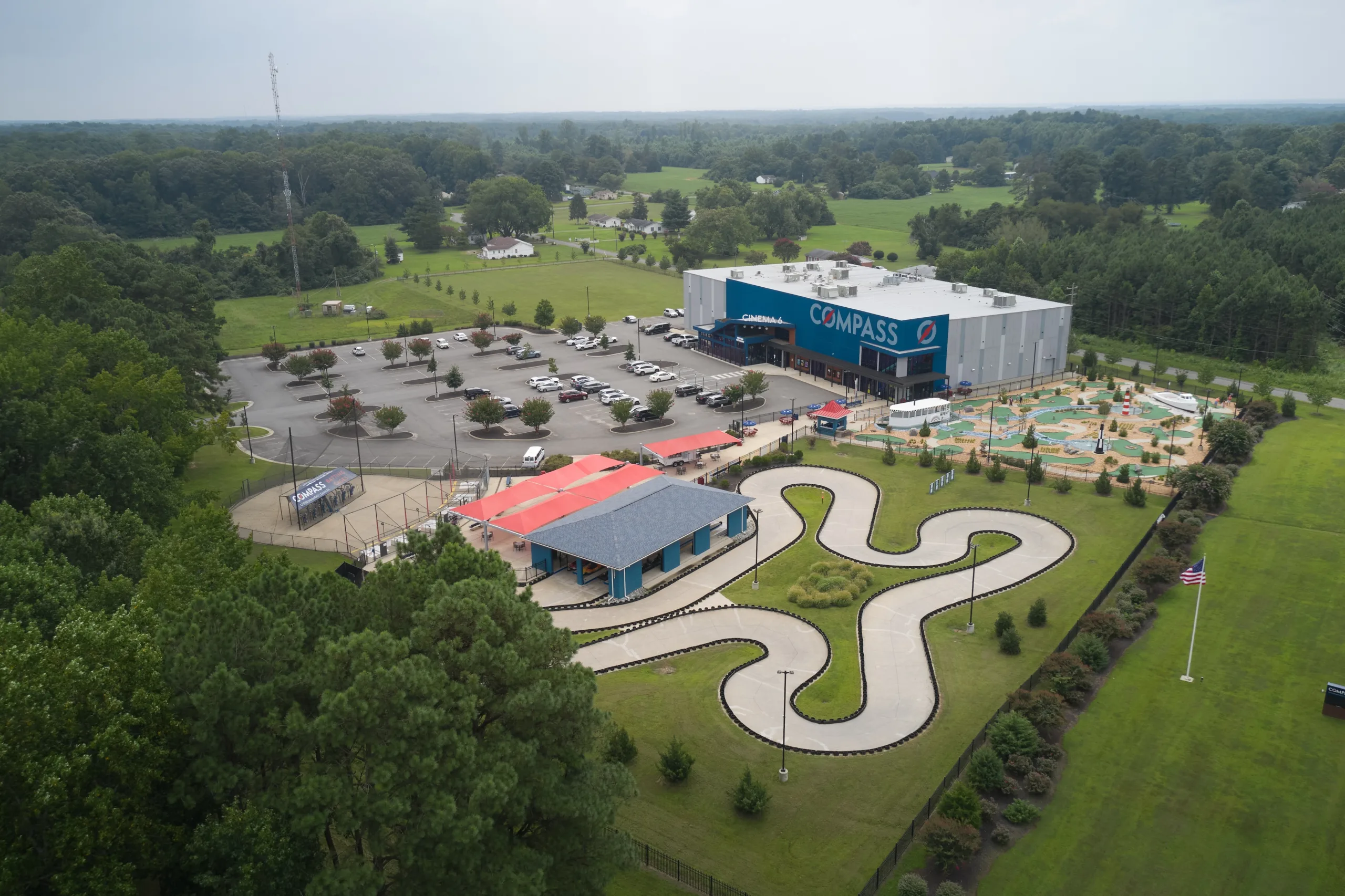They had to call it fried chicken. At first, the restaurateurs at Ambar put their signature dish on the menu by its preferred name—“monastery chicken.” It was served for generations to the monks at Gracanica Monastery in Serbia, to end their fast.
“But nobody ordered it when we called it monastery chicken,” says Uros Jojic,
director of operations for Street Guys Hospitality, the restaurant group that operates
the Balkan restaurant in Arlington. “So we just called it fried chicken instead.
And now people order it all the time. It’s one of their favorite things.”
Such are the challenges of running a Balkan restaurant in Virginia. To most mid-Atlantic diners, the food of the Balkan region in Southeast Europe is almost completely unknown. The nations include Albania, Bosnia and Herzegovina, Bulgaria, Croatia, and Kosovo, to name a few.
The “fried chicken,” by the way, is superb: a buttermilk-brined breast lightly coated with coarse breadcrumbs and chopped nuts, quick-fried and presented on a layer of finely chopped apples and shallots in a wasabi cream.
Wait—wasabi, served in a Serbian monastery? It’s just one of the tweaks to the Balkan classics that executive chef Bojan Bocvarov makes to the recipes at Ambar to give the menu a contemporary touch.
Despite the cuisine’s obscurity—or, more likely, because of it—Ambar is a regional foodie attraction. It’s packed for brunch, and weekend dinner reservations can be hard to snag. In 2019, it was recognized with Michelin’s Bib Gourmand designation, an accolade assigned to restaurants that deliver high quality at a reasonable price. Ambar ranks number one on Trip Advisor’s list of Arlington restaurants.
The Balkan concept didn’t sell at first. Ambar originally opened in 2013 in D.C., on Capitol Hill, and “it started out upscale,” Jojic says, a place that would serve the Balkan diplomatic community and appeal to high-end diners with global tastes. Prices were high partly because there was so much food on the plate.
“Portions in our countries are huge,” Jojic says, spreading his hands to the size of a hubcap. “That’s what people are used to eating at home. But that wasn’t going to work here.”
Within months Ambar was retooled with a more casual atmosphere, broader appeal, and an offering of small plates—“a tapas concept … with as much as you want, at a fixed price. This way guests could sample many different Balkan dishes. It feels more like a family meal … more like the kind of hospitality of our home countries.”
The restaurant took off, and the Virginia location opened in 2016. A second D.C. restaurant opened last year, and Jojic hints that a national expansion may be coming.

The concept is a variation on a Balkan tradition called voz, which translates to “train.” With a “small train,” a new dish comes out every 10 minutes; with a “big train,” every five. At Ambar, you’re the conductor: Order as you go and the food arrives when ready, as in any tapas restaurant.
A meal at Ambar is an absurdly good value: For $49.99 per person, you get the run of a 40-dish menu that’s full of exotic surprises. During my most recent visit, I chose from among kajmak, ajvar, urnebes, cevapi, sarma, and sujuk. I know, I know: Me neither. The beauty is, you don’t need to know. Just try them all.
The kajmak turns out to be a creamy, buttery spread to scoop up with the puffed ovals of
warm pita and corn muffins that appear at your command. Ajvar is a roasted pepper, garlic, and eggplant spread that put me in mind of baba ganoush. Both are Balkan classics.
The cevapi—ground beef kebobs served without the skewer on an artful smear of spicy feta—are more tender, juicy, and flavorsome than any I’ve had. The gently savory veal soup, a regular presence at Balkan weddings and funerals, is sharpened with a squeeze of lemon. The sarma, cabbage leaves stuffed with pork belly and cooked for a full workday, sag on the plate and melt on the tongue.
You’ll find mussels like Ambar’s nowhere else. They are flambéed in rakia—Balkan plum brandy—and served in a luxuriant garlic cream sauce. Served four or five in a small pan, they were the highlight of my meal.
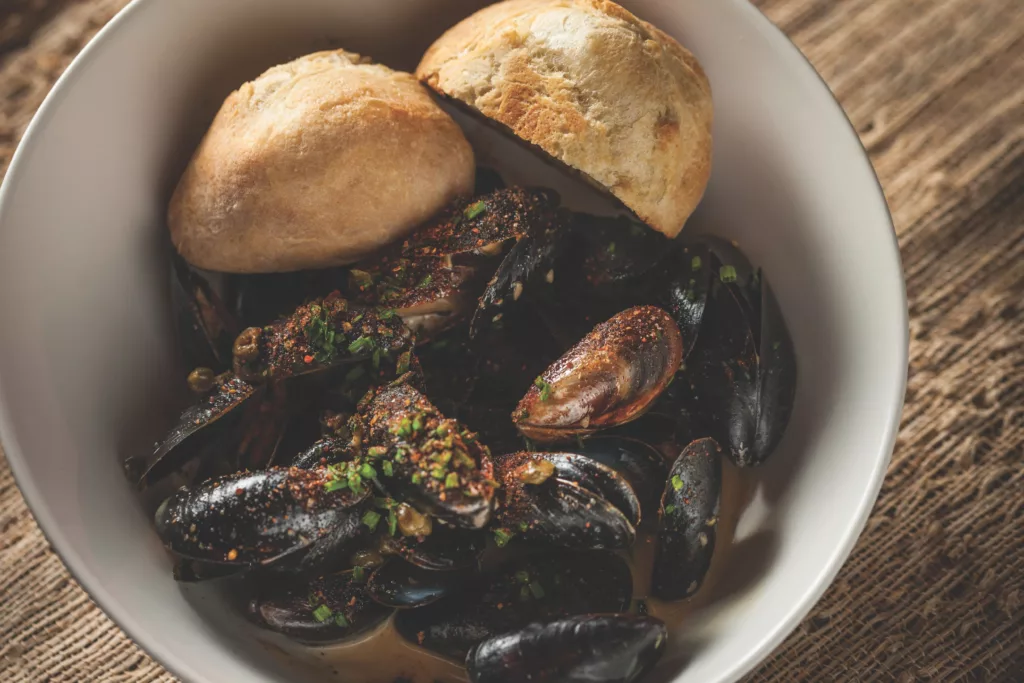
Ambar’s drunken mussels are served with somun, a Balkan flatbread similar to pita.
Photo by Goran Kosanovic
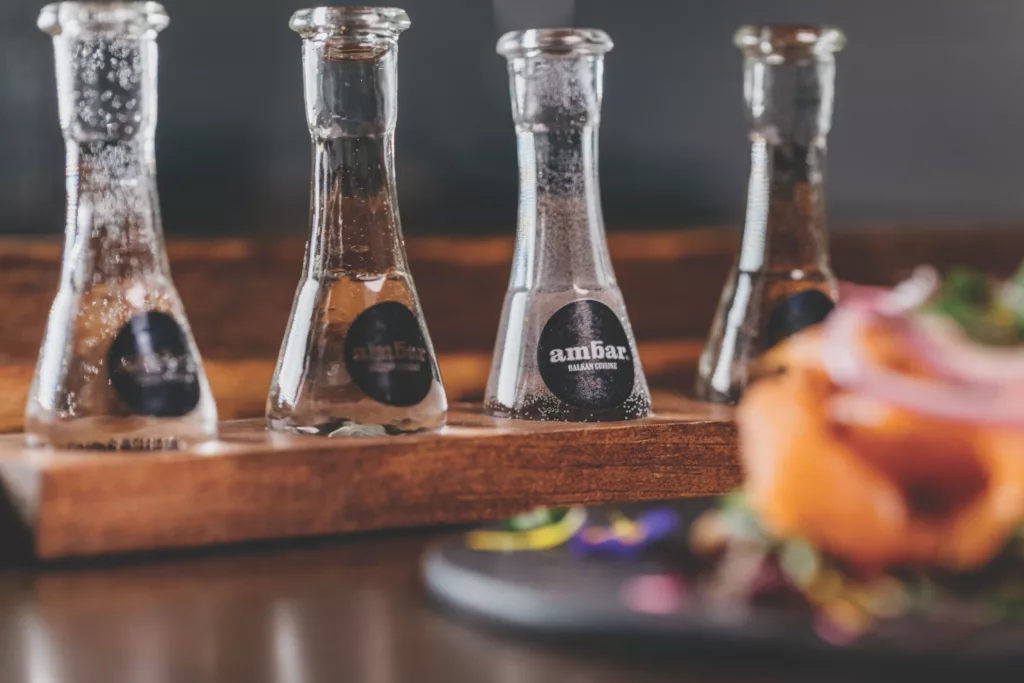
Rakia, or traditional Balkan plum brandy, is served in Ambar-branded cokanji, often pilfered by customers. “If they’re going to take them, we want it so they get home and open the cupboard, they see the name Ambar and remember the good time they had with us,” says Uros Jojic. Photo by Anchor Images Inc.
About one third of the restaurant’s employees are from Balkan countries, Jojic says. Some come from the operation’s restaurant in Belgrade, Serbia. “If employees prove themselves there and want to come to the U.S.” they can apply for a work visa and work for one of the Ambar restaurants, he says.
The value of hiring Balkan employees, Jojic says, is that “hospitality comes naturally in our part of the world. We’re proud of that. We want every guest to feel they’ve had a taste of a true Balkan experience.”
You can continue your Balkan journey on the wine list, where you’ll find hearty and affordable selections from Moldova, Bosnia and Herzegovina, Slovenia, and other places you’ve never tasted wine from. But the drinking highlight is the Balkan specialty of rakia, fruit brandy that’s not only used to flambé mussels, but is commonly offered as a welcoming drink or digestif.
Jojic calls for a couple of house plum rakia as we talk. They arrive in small cut-glass vessels, called cokanji, that look like miniature bud vases. Ambar labels are visible on one side of the base.
“Ziiveli!” Jojic says. It means “cheers” in Serbian and Croatian. We clink the cokanji.
“These glasses were used traditionally for homemade plum rakia, which wasn’t very good,” he explains. “They are small on top so people couldn’t smell the aromas.” Jojic assures me Ambar’s rakias are very good. Flights are available among six distinct flavors that include plum, pear, quince, and apricot.
Customers rave. So much so that they often pilfer the cute little cokanji.
“That’s why we put our label on them,” Jojic says with a laugh. “If they’re going to take them, we want it so they get home and open the cupboard, they see the name Ambar and remember the good time they had with us.
“Some people might call it theft,” Jojic says, smiling. “We think of it as sharing Balkan
hospitality.”
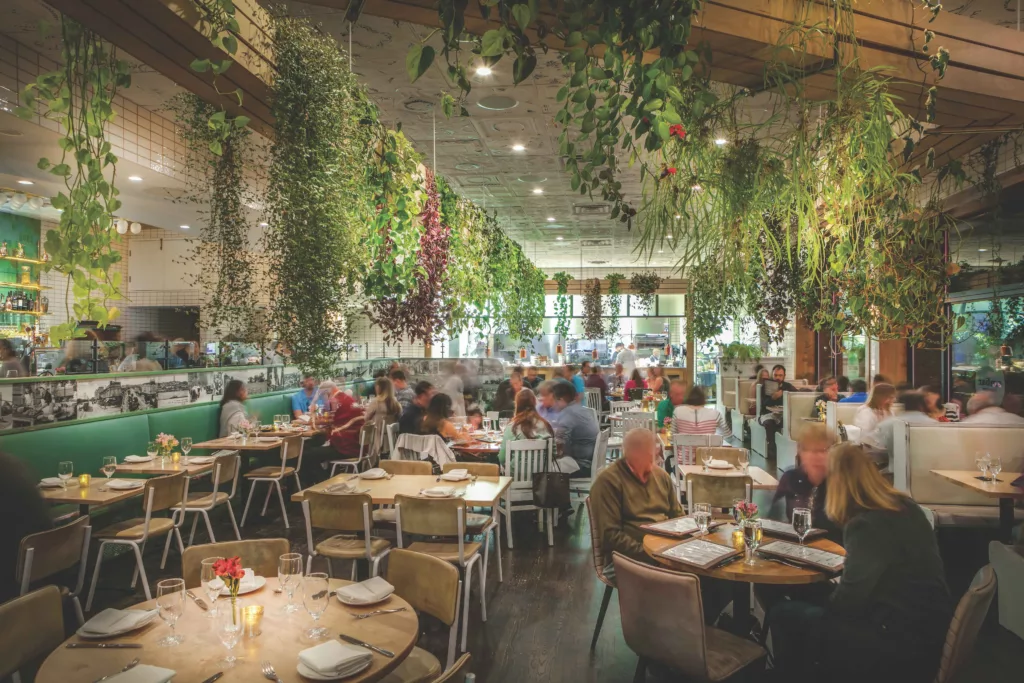
At Ambar’s Clarendon location, plants hang from a pressed-tin ceiling, creating a cozy European vibe. Photos by Goran Kosanovic
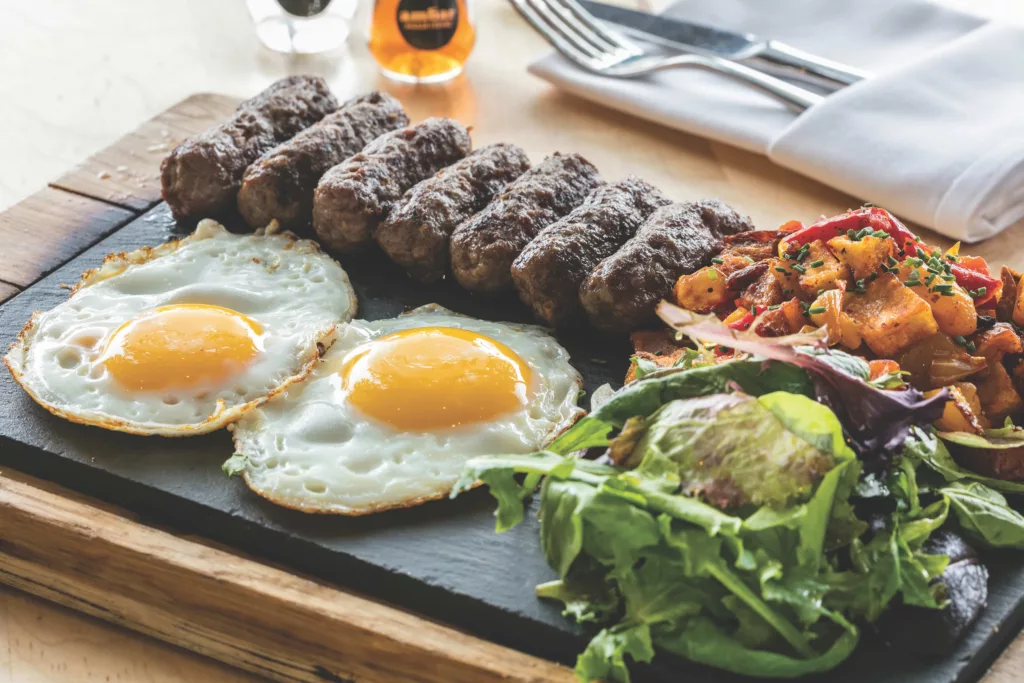
Featured photo by Marko Jankovic. This article originally appeared in the April 2025 issue.
